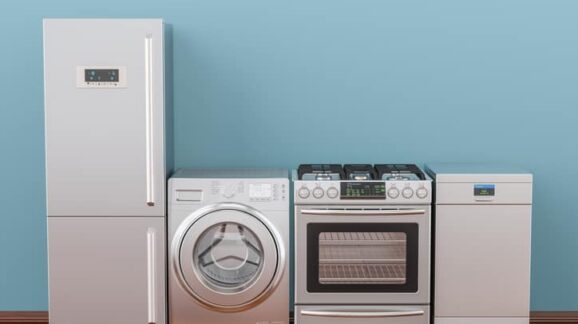House bill fights appliance regulatory overreach

Photo Credit: Getty
The American people face a wave of new federal appliance regulations, and all of them are bad. But this week, the House of Representatives will vote on H.R. 6192, the “Hands Off Our Home Appliances Act,” which would push back against any such future measures and make it easier to fix problems with past ones.
In the last year alone, we saw proposed and finalized Department of Energy (DOE) efficiency regulations targeting stoves, dishwashers, ceiling fans, washing machines, water heaters, room air conditioners, refrigerators, light bulbs, and furnaces. Many threaten to increase up-front costs substantially, while others would likely compromise appliance quality, features, performance, reliability, and choice.
The underlying statute authorizing DOE to set appliance standards, the Energy Policy and Conservation Act of 1975 (EPCA), includes several protections to ensure that no rule harms consumers, but DOE has routinely flouted these requirements. For this reason, Rep. Debbie Lesko (R-FL) introduced H.R. 6192 which strengthens the existing protections and adds some new ones. For example, the bill shores up language already in the law forbidding the agency from setting efficiency standards that compromise appliance quality in any way or deprive consumers of choices.
The bill also states that the agency can set an appliance rule only if it is “not likely to result in additional net costs to the consumer…” Most people would be shocked that this even needs to be said, but the recent actions of DOE’s regulators show that it does. Indeed, several pending rules threaten to raise the purchase price more than is likely to be earned back in the form of energy savings over the life of the appliance for many if not most users.
The bill would also make it easier for DOE to revisit and correct past regulations that have backfired, of which there are several. Most notably, the agency’s past dishwasher requirements have led to machines that now take two or more hours to complete a load of dishes, roughly double the time before regulators started meddling with them. By the way, rather than concede that its past dishwasher rules have harmed consumers and seek ways to remedy the damage, DOE is doubling down by finalizing another rule likely to make things worse.
Part of the problem is that the Biden administration has prioritized climate change considerations over the best interests of consumers. Indeed, all of the proposed and recently finalized rules claim climate change benefits. H.R. 6192 would help restore the consumer focus by forbidding any use of climate change considerations in the appliance standard-setting process.
Overall, H.R. 6192 raises the bar on DOE by requiring the agency to ensure that several consumer protections are met before regulating any appliance. The same is true for similar bills targeting specific appliances, including washing machines, room air conditioners, refrigerators, and dishwashers, that will also be voted on. Unfortunately, this approach still allows the agency to make the determination that it has complied, and we have seen that DOE can and will fudge the analysis to achieve its regulatory goals. That is why it would be better to sunset DOE’s authority to further regulate appliances, several of which (dishwashers, air conditioners, refrigerators, and washing machines) have already been subjected to four or more rounds of rules before the Biden administration chose to burden them yet again.
Until such time as we can discuss pulling the figurative plug on this unnecessary and harmful regulatory program, H.R. 6192 is a good start towards putting it on a more rational path and keeping the focus on consumers.